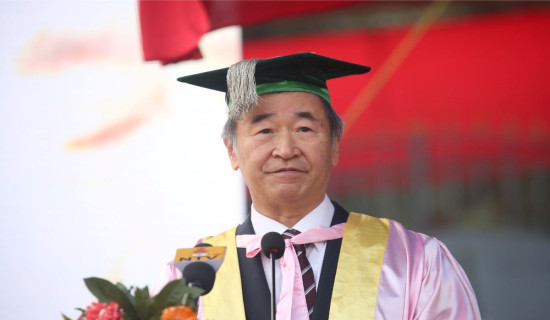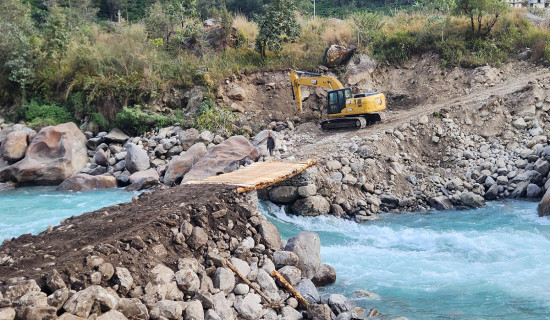- Friday, 26 December 2025
Connection Of Dashain Among Nepali Diaspora
The nation is embraced by a joyful atmosphere as Dashain, a revered Hindu festival, begins. For the younger generation, Dashain signifies extended holidays, the allure of new attire, and the delight of savouring meals. While, for the elders, it is a time marked by the joy of reuniting with family and relatives.
With the anticipation of reuniting with their families, numerous individuals residing in the cities for employment, study, and business are making a return to their hometown. The rapid surge in migration has affected the Nepali community, a reality intensified during the festive season. In the present day, Dashain sees the separation of many families, with some members residing in Nepal while others are scattered abroad.
A significant number of Nepalis have chosen to migrate overseas for various reasons, including work, education, and even permanent residency. During the festive season, the Nepali diaspora feels the absence of family and homeland. Despite the physical distance, those abroad carry the love and memories of Nepal in their hearts, leading them to celebrate festivals like Dashain in unique ways.
As the Nepali diaspora continues to grow with an increasing number of migrants abroad, the celebration of festivals, including Dashain, expands and evolves. Nabin Sapkota, hailing from Gorkha and now residing in Australia, emphasises that his Dashain celebrations centre on intimate gatherings with family and friends. Additionally, he actively engages in cultural programmes organised by the Nepali community to enrich the festive experience. Sapkota cherishes the blend of personal connections and communal festivities during this significant occasion.
In recent times, various Nepali communities abroad have initiated the practice of inviting Nepali artists, particularly during the festive season. Despite the exciting engagement in these programmes, Sapkota acknowledged that individuals from Nepal might mistakenly assume that the Nepali diaspora revels in the festivals. However, he emphasised that the reality is bittersweet, as the deep love for their homeland and families often arouses a sense of sadness during festive occasions.
Sapkota shared a heart-touching experience from five years ago when, as newcomers to Australia, he and his wife performed the Tika ceremony at 9:00 pm due to odd working hours. This year, the couple has a baby, and they have invited their parents from Nepal. "Despite having my father and mother with me in Australia, I am still missing other family members from Nepal," said Sapkota. "My oldest grandmother is in Nepal, and my wife’s parents are also there," he added. Sapkota, who used to be an organiser of the cultural programme held in his village, every Nawami, is missing the moments. Every activity we did with our friends during Dashain at the village makes me nostalgic here, he said. "The love of the land cannot be expressed in words," he added.
In recent times, individuals abroad have sought blessings from their parents through video calls. However, this heartfelt connection can be emotionally challenging for them. Sapkota shared that he wants to meet his grandmother in person rather than receive blessings through the screen. He expressed the poignant fear that his young child might never have the chance to meet his great-grandmother in person, especially considering her old age.
It is crucial to acknowledge that the experiences within the Nepali diaspora are diverse, and not every story is the same as that of Nabin. Many students, for instance, find themselves in solitude without their families. In contrast, those residing with their families abroad tend to enjoy the joy during festivals.
Manju Bhatta from Dhading, who is alone in Portugal, shared that she spent nearly a decade without receiving tika in Dashain from family members. However, this year, she is excited as she prepares to return to Nepal on Nawami. Being with her parents this year brings her immense happiness.
Every migrant has a different story, but those caught up in busy schedules often miss their home country during Dashain. Bimala Rijal, 55, is currently residing in America with her two sons and is concerned about her two daughters in Nepal. Although Nepali people gather at various places to celebrate Dashain in America, Rijal misses her two married daughters and other relatives.
"Even though we engage in lengthy video calls, I yearn to be physically together with them during festivals," she said. The memory of Nepal cannot be replaced, but the Nepali community's efforts to connect people abroad are praiseworthy, said Rijal.
In Europe, America, and Australia, Nepalis celebrate Dashain, while those in Gulf countries, mostly without family, find joy in spending time with fellow Nepalis.
With advancing technology, the tradition of digital connections, like online video calls, has become popular. These virtual encounters allow migrants to feel closer to their families in Nepal. Dashain serves as a poignant reminder of the Nepali diaspora's connection to their homeland. Despite embracing a new life abroad, the festival becomes a powerful occasion to revive cherished traditions and bond with family, even if it is only through screens and online calls. The dedication of the Nepali community overseas to preserve their cultural tradition is commendable. Dashain transcends physical borders, showcasing the spirit and love that Nepali migrants hold for their land and roots.
(Dhakal is a journalist at The Rising Nepal.)

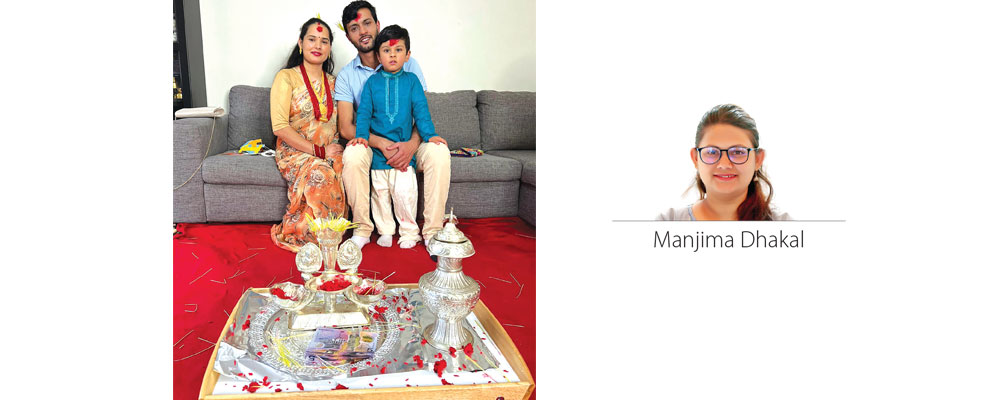







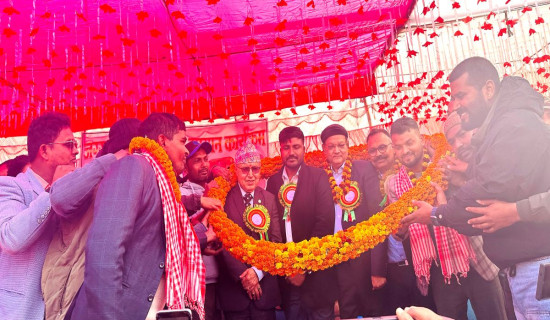
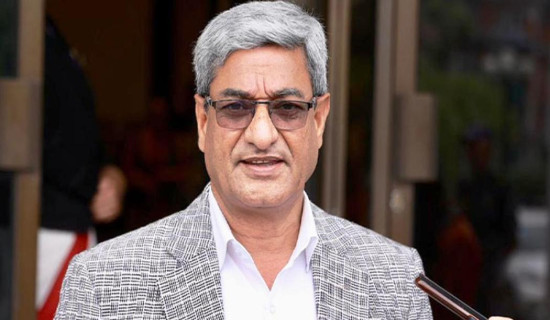
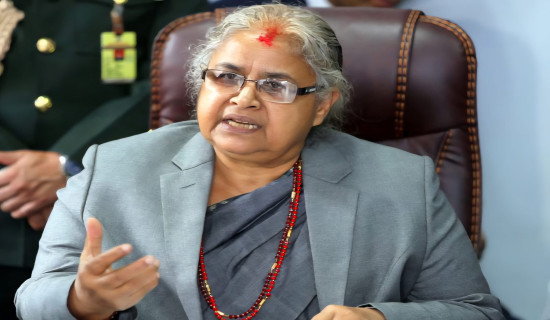
-original-thumb.jpg)

